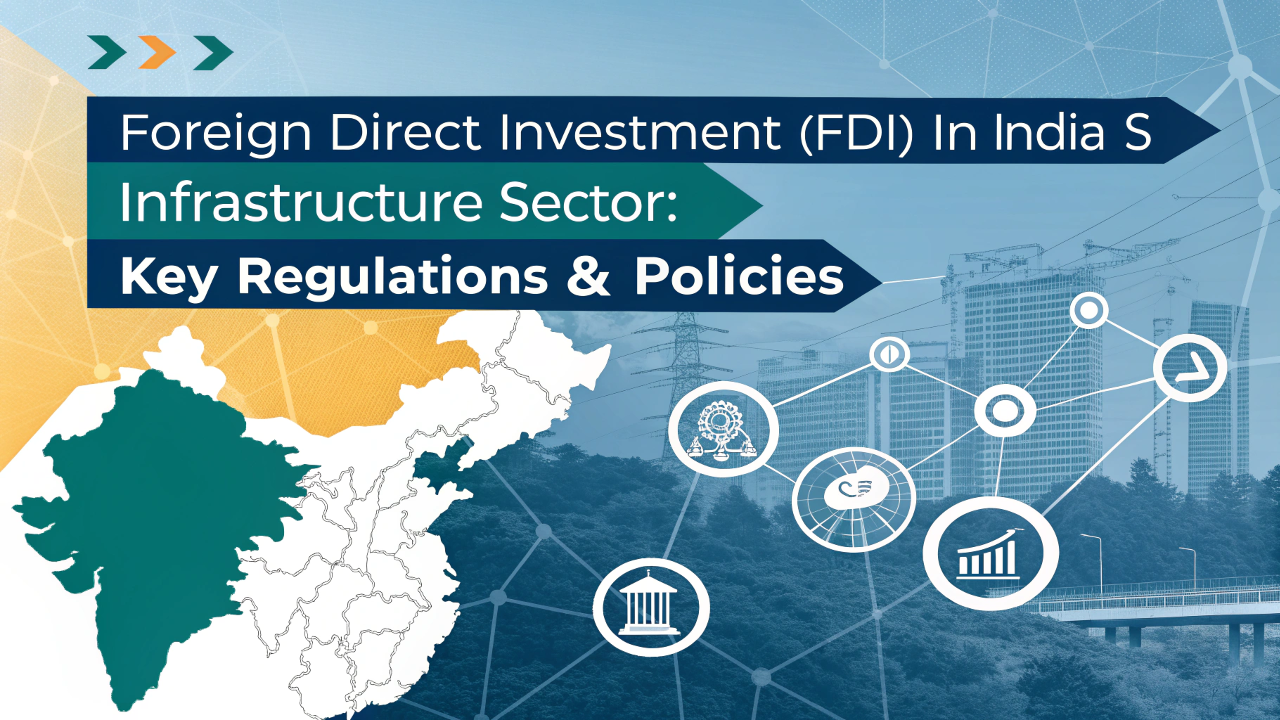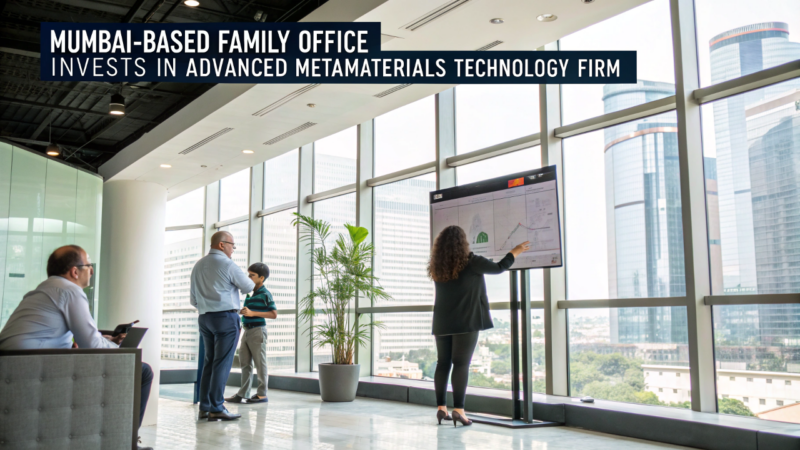
Introduction
India’s infrastructure sector stands as one of the largest recipients of Foreign Direct Investment (FDI), offering abundant opportunities in critical areas such as roads, railways, airports, urban development, renewable energy, and smart cities. With 100% FDI allowed in several key infrastructure sectors, India is aggressively liberalizing investment policies to attract both global capital and advanced technology.
This blog delves into India’s FDI regulations, policy incentives, sector-wise investment trends, and business opportunities for international investors.
FDI in India’s Infrastructure: An Overview
- $50 billion+ in FDI was attracted by India’s infrastructure sector between 2020-2024.
- 100% FDI is permitted under the automatic route in a wide range of sectors.
- Government initiatives such as the National Infrastructure Pipeline (NIP) and Production-Linked Incentive (PLI) schemes are boosting foreign investment.
Key Benefits for Foreign Investors
- Liberalized Investment Policies: Policies that encourage easier market entry and reduce regulatory barriers.
- Large-Scale Infrastructure Projects: Backed by government funding and incentives, creating opportunities for significant investments.
- Strategic Partnerships: Opportunities for collaborations with leading Indian firms in PPP and BOT models.
FDI Regulations in India’s Infrastructure Sector
1. Automatic Route vs. Government Route
- Automatic Route: No prior government approval is required for most sectors.
- Government Route: Requires approval for sensitive sectors like defense and telecom infrastructure.
2. Sector-Wise FDI Limits & Policies
| Sector | FDI Limit | Approval Route |
|---|---|---|
| Roads & Highways | 100% | Automatic |
| Ports & Shipping | 100% | Automatic |
| Renewable Energy | 100% | Automatic |
| Railways (Infrastructure) | 100% | Automatic |
| Airports (Greenfield) | 100% | Automatic |
| Urban Infrastructure (Smart Cities, Metro, Water) | 100% | Automatic |
| Telecom & Digital Infrastructure | 74% | Automatic |
| Defense & Strategic Infrastructure | 49% | Government |
3. Foreign Investment Protection & Ease of Doing Business
- Bilateral Investment Treaties (BITs) with major economies ensure investment protection.
- FDI is linked to tax incentives and customs duty exemptions for infrastructure investments.
- The National Single Window System (NSWS) simplifies investment approvals.
Key Infrastructure Sectors Attracting FDI
1. Transport Infrastructure (Roads, Railways, Ports, Airports)
- The Bharatmala Road Project ($100 billion) is attracting foreign EPC contractors.
- Foreign investments are also flowing into metro rail expansions in Mumbai, Bengaluru, Hyderabad, and Chennai.
- Major airport privatization projects are underway, with firms like Adani, GMR, and several international players involved.
2. Renewable Energy & Power
- India has a $500 billion renewable energy plan for 2030, creating ample opportunities in solar parks, wind farms, and hydrogen projects for foreign investors.
3. Smart Cities & Urban Infrastructure
- The Smart Cities Mission is offering PPP investment models for foreign investors.
- Technology firms are integrating AI, IoT, and digital twins in city planning to enhance urban infrastructure.
Challenges & Risk Mitigation for FDI in India’s Infrastructure
1. Regulatory & Land Acquisition Challenges
- Solution: The government is simplifying land acquisition laws to ensure smoother execution of infrastructure projects.
2. Delayed Project Clearances & Bureaucracy
- Solution: ‘Ease of Doing Business’ reforms and Single-Window Clearance systems are streamlining approval processes.
3. Tariff & Revenue Risks in PPP Projects
- Solution: Viability Gap Funding (VGF) is being used to mitigate financial risks and provide security to foreign investors in PPP projects.
Conclusion
India’s FDI-friendly policies, multi-billion-dollar infrastructure projects, and digital transformation present immense opportunities for foreign investors. With liberalized investment policies, PPP models, and government-backed incentives, global investors and EPC contractors can capitalize on India’s rapidly expanding infrastructure market. The combination of strategic sector policies, liberalized FDI norms, and government reforms positions India as a key market for international investments in infrastructure.
External References & Citations:
- Department for Promotion of Industry and Internal Trade (DPIIT) – FDI Policy Framework
- Ministry of Finance – Infrastructure Investment Reports
- World Bank India – FDI in Emerging Markets
- PPP India – Public-Private Partnerships in Infrastructure






